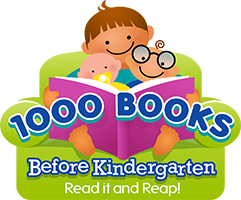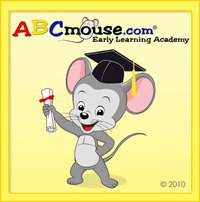 Why 1000 Books Before Kindergarten?Here are the reasons that it’s awesome:
Why 1000 Books Before Kindergarten?Here are the reasons that it’s awesome:
1) The kids know that they’re a part of something. Something big. Whenever they finish 100 books, they come to turn in their sheet, waving it in the air and skipping. You can tell they’re really proud.
2) Parents are cognizant about their role in school readiness. Reading before school is not only a fun way to bond as family, it actually does terrific stuff to the brain. Like map it to be smart.
3) It benefits us, it benefits them. Our circulation numbers increase. The families have a successful, productive visit to the library. The kids feel good coming to the library.
What does the research say?
1. “Home literacy” or engaging in language and reading at home before school and increases reading readiness.
2. Vocabulary, in its complex existence, is of paramount importance in reading readiness.
3. Vocabulary can be developed by sharing books.
4. Early successful language activities, such as sharing stories, contribute to the prevention of reading difficulties in school.
5. A home life that includes positive experiences with reading and the library ensures positive attitudes for reading once in school.
- Research suggests reading 10 to 20 minutes per day outside of school time: Every ten minutes increases the benefits of print exposure, but the most bang for one’s proverbial buck happens at 20 minutes per day.
- You can share 2-3 picture books in 20 minutes. Add that up and it’s about 1,000 books in one year.
How the 1,000 Books Before Kindergarten program works:
1. This program is designed for families with children birth through age 5.
2. Sign up by using this Google Form or call or email the Children’s Room.
3. Record each book read. Repetition is good, so you may record a favorite book more than once.
4. Pick out books you enjoy and have fun reading together (use expression!). Find a time when you and your child are in a good mood to read. Reading together should never be a chore.
5. Each time you read 100 books, bring in your reading journal to the library. You will receive:
-
- two stickers – one for your book and one for the library wall
- your next set of pages for your reading journal
Visit the library often and discover the wonderful variety of books to check out and read together.
6. You may read books from anywhere: the library, from home, preschool, etc. You may also count books read at Story time programs at the library or school.
7. Don’t be daunted! Just 3 books a day amounts to 1000 books in 1 year, and this program is designed to give you time over a few years to meet your goal.
Once you have read 1000 books, you are finished with the program. Please continue to read together, and feel free to add your own pages to the journal if you wish.
Frequently Asked Questions:
Can you really expect to read 1000 books to your child before kindergarten?
If you read only one bedtime story every night for three years you will have read 1095!
If you read 10 books each week for two years, you will have read 1040.
Double that rate to do 1000 books in one year.
You can begin much earlier though, when your child is an infant!
I read the same story every night to my child. Can I count that book more than once?
Yes, write down the title (or an abbreviation of it) each and every time you read the book.
I have more than one child I read to. Can I count the same title for each child?
Of course, you may! And if one of your older children reads to their sibling, you can count that also.
May I count books that are read at Story Time?
Yes, just ask Ms. Lisa for the titles.
What about the books that my preschooler hears at school?
Yes, you can count those.
When I don’t have time to read to my child, I sometimes let them listen to an audiobook.May I add that to their list?
Sure, as long as she has listened to the entire story.
My older children like to read to their younger siblings. Can I count those books?
Count any books that are read to your child, no matter who reads the books. It can be a brother, sister, grandparent, babysitter, teacher, etc. As long as they hear the entire story, you can count it.




